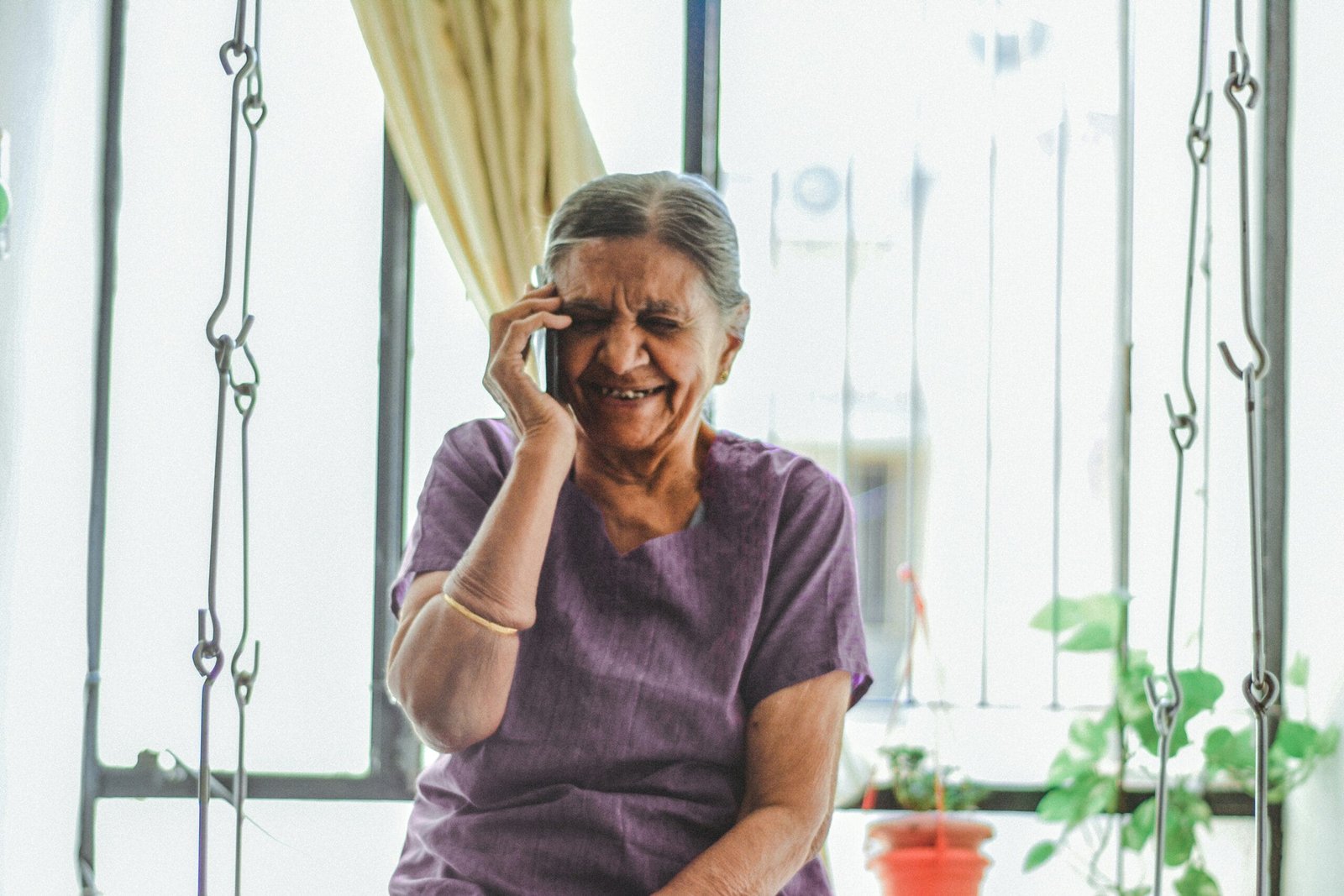
Photo by <a href="https://unsplash.com/@kommumikation" rel="nofollow">Mika Baumeister</a> on <a href="https://unsplash.com/?utm_source=hostinger&utm_medium=referral" rel="nofollow">Unsplash</a>
Introduction to H.R. 30
The Preventing Violence Against Women by Illegal Aliens Act, known as H.R. 30, represents a significant legislative effort aimed at addressing the troubling issue of violence against women perpetrated by individuals residing illegally in the United States. Introduced in response to increasing concerns regarding domestic violence and other forms of violence, this bill underscores the urgency of safeguarding vulnerable populations, particularly women, who are often disproportionately affected by such acts of violence.
Legislatively, H.R. 30 emerges from a pressing need to establish a framework that not only highlights the risks faced by victims but also seeks to hold perpetrators accountable for their actions. By addressing the intersection of immigration status and criminal behavior, the bill aims to fill a notable gap in current laws which may inadequately protect victims of violence who may fear deportation or legal repercussions when seeking help. The purpose of this legislation is multifaceted; it seeks to enhance protections for victims while ensuring that perpetrators of violent acts do not escape justice based on their immigration status.
The implications of H.R. 30 extend beyond immediate legal concerns. The introduction of this bill could foster a more proactive approach in law enforcement agencies, encouraging them to prioritize domestic violence cases as part of their public safety initiatives. In addition, it aims to promote awareness regarding the specific challenges faced by immigrant women, who may be hesitant to report crimes due to intimidation from their abusers or fear of law enforcement. The significance of H.R. 30 lies in its potential to empower victims, reinstate a sense of safety, and foster a legal environment where violence against women is unequivocally condemned, regardless of the perpetrator’s immigration status.
The Context of Violence Against Women
Violence against women remains a pervasive issue globally, transcending socio-economic boundaries and cultural contexts. According to the World Health Organization, approximately one in three women worldwide have experienced either physical or sexual violence in their lifetime. This alarming statistic underscores the urgency of addressing this grave matter. The implications of such violence are far-reaching, affecting not only the victims but also families, communities, and societies at large. Women who experience violence often suffer long-term physical and psychological consequences, which can hinder their ability to participate fully in society.
Several risk factors contribute to the prevalence of violence against women. These include, but are not limited to, economic dependency, social norms that condone violence, and previous exposure to violence in childhood. Additionally, certain marginalized groups, including those affected by illegal immigration, may experience heightened vulnerabilities. Research indicates that women who are undocumented may be less likely to report incidents of violence due to fears surrounding legal repercussions, potentially leading to underreporting of these critical incidents.
The intersection of illegal immigration and violence against women is a crucial aspect of the conversation surrounding H.R. 30: The Preventing Violence Against Women by Illegal Aliens Act. By addressing this intersection, the bill aims to shed light on the unique challenges faced by immigrant women, particularly those who are undocumented. These women may often find themselves in precarious situations, lacking safe access to resources or supportive services due to their immigration status. This reality not only perpetuates a culture of silence but also complicates the pursuit of justice and accountability. Thus, understanding the broader context of violence against women is instrumental in assessing the implications of proposed legislation aimed at tackling this pervasive issue.
Key Provisions of H.R. 30
The Preventing Violence Against Women by Illegal Aliens Act, known as H.R. 30, introduces several significant provisions aimed at addressing the issue of violence against women perpetrated by undocumented individuals. These measures are designed to enhance legal recourse for victims and impose stricter penalties on offenders. One crucial aspect of H.R. 30 is that it explicitly establishes enhanced penalties for illegal aliens who are convicted of violent crimes against women. This approach focuses on ensuring that the legal system holds offenders accountable and deters potential violence against vulnerable populations, particularly women.
In addition, H.R. 30 emphasizes the importance of victim support by outlining specific procedures that victims of violence may follow to seek justice. This includes creating streamlined processes for reporting crimes, accessing legal assistance, and obtaining protective orders. By enabling victims to navigate the judicial system more effectively, the legislation aims to empower women and encourage them to come forward with their experiences. Moreover, the bill proposes to establish specialized units within law enforcement agencies to handle cases involving violence against women committed by illegal aliens, ensuring that such cases are treated with priority and sensitivity.
Another vital provision of H.R. 30 involves the collaboration between federal and state authorities in addressing and prosecuting instances of violence against women. This collaborative approach aims to create a cohesive strategy for combating such crimes, which often involve complex jurisdictional issues. By reinforcing the role of local law enforcement while providing federal support and resources, the bill hopes to create a more effective legal framework for preventing and addressing violence against women. Overall, H.R. 30 seeks to balance the enforcement of immigration laws with the need for victim protection and accountability in violent crime cases.
Roll Call 16 Explained
Roll Call 16 represents a critical moment in the legislative journey of H.R. 30, known as the Preventing Violence Against Women by Illegal Aliens Act. This roll call was conducted to gauge the level of support for the bill among members of Congress, showcasing the divided opinions on such a contentious issue. In essence, it highlights the institutional responses to the challenges surrounding violence against women, especially in the context of illegal immigration.
During the roll call, members were presented with the option to vote either in favor of or against the bill, and the results were indicative of the broader political climate concerning immigration policies and women’s safety. A total of 230 representatives cast their votes in favor of H.R. 30, while 190 opposed it. The strong support underscores a significant portion of Congress perceiving the need for measures aimed to bolster protections for women subjected to violence perpetrated by illegal aliens.
A closer look at the individual votes reveals an interesting bipartisanship aspect, with some members from both major political parties aligning with the overarching goal of enhancing safety for victims of domestic violence. However, many Democrats and a handful of Republicans expressed concern over potential implications regarding due process and the possible stigmatization of immigrant populations, which contributed to their opposition to H.R. 30.
This roll call not only serves as a crucial indicator of congressional sentiment but also initiates a broader dialogue on the intersection of immigration and violence against women. The implications of such a vote are substantial, potentially influencing future legislation and the overall focus on protecting vulnerable communities within the nation. Understanding the dynamics behind Roll Call 16 provides essential context for analyzing the support base and critiques surrounding H.R. 30.
Potential Impacts of H.R. 30
The introduction of H.R. 30, also known as the Preventing Violence Against Women by Illegal Aliens Act, has raised various discussions regarding its potential impacts on communities, law enforcement, and the legal system. Proponents argue that the bill could significantly enhance the safety of communities by providing law enforcement agencies with additional tools to address crimes committed by undocumented individuals. By imposing stricter penalties for violent offenses related to illegal immigrants, supporters believe the legislation could serve as a deterrent against such crimes, thereby fostering a sense of safety and security, particularly for women who may be vulnerable to violence.
However, the negative implications of this bill cannot be overlooked. Critics point to the potential for increased discrimination against immigrant populations, suggesting that the bill could lead to racial profiling and exacerbate community tensions. The heightened scrutiny of undocumented individuals may create a climate of fear, discouraging victims of violence from reporting crimes to authorities, thus undermining public safety initiatives. Moreover, there is concern about the strain on law enforcement resources, as officers may be required to prioritize immigration enforcement over their primary duties to protect and serve, potentially leading to a decline in trust between police and immigrant communities.
Additionally, the legal system may experience significant changes as a result of H.R. 30. Courts could become burdened with an increased number of cases stemming from the enforcement of this legislation. This could prolong legal proceedings and divert attention from other pressing legal matters. Furthermore, justice advocates warn that the bill could potentially disrupt the due process rights of individuals, particularly if measures are taken to expedite the handling of cases involving undocumented individuals.
Overall, the potential impacts of H.R. 30 encompass a range of consequences that merit thorough examination. It is essential for lawmakers and stakeholders to critically evaluate both the intended and unintended effects that the bill may have on various segments of society.
Debate and Controversy Surrounding H.R. 30
The introduction of H.R. 30, officially known as the Preventing Violence Against Women by Illegal Aliens Act, has ignited considerable debates and controversies among various stakeholders, including political leaders, advocacy groups, and the general public. Proponents of the bill argue that it is a necessary measure aimed at protecting vulnerable women from violence committed by individuals residing in the country illegally. Supporters emphasize that the legislation could serve as a deterrent to potential offenders by increasing penalties for those engaging in violent behaviors, thereby safeguarding victims and encouraging them to seek help without fear of deportation for seeking justice.
On the other hand, critics of H.R. 30 contend that the bill perpetuates harmful stereotypes about immigrants and fails to address the root causes of domestic violence. Advocacy groups argue that the legislation may foster an environment of fear within immigrant communities, potentially discouraging individuals from reporting crimes due to concerns over their immigration status. This concern underscores the risk that such legislation could restrict access to essential resources for victims of domestic abuse, contradicting its stated objectives.
Additionally, discussions surrounding H.R. 30 often delve into the broader implications of law enforcement practices and immigration policies. Many opponents point out that focusing on the immigration status of perpetrators diverts attention from vital issues such as access to mental health services and educational programs that could prevent violence in the first place. In the political arena, the divisiveness of H.R. 30 reflects broader societal challenges associated with immigration policy, as party lines often dictate the stance taken on legislations of this nature, intensifying ongoing debates about national security, community safety, and human rights.
Public Response and Advocacy Efforts
The introduction of H.R. 30: The Preventing Violence Against Women by Illegal Aliens Act has elicited a diverse array of responses from the public and various advocacy groups. Organizations dedicated to women’s rights have articulated significant concerns regarding the implications of this legislation. Many fear that the bill could further stigmatize immigrant communities and deter victims of domestic violence from seeking help. This concern has been echoed by numerous grassroots movements, which argue that the law may inadvertently place vulnerable individuals at greater risk of harm.
Grassroots campaigns have emerged, emphasizing the need for comprehensive immigration reform alongside effective protections for women. Activists underscore the principle that legal status should not define one’s right to seek justice. Consequently, there have been organized public protests aimed at raising awareness about the potential adverse effects of the legislation. These demonstrations often serve to galvanize community support, highlighting the paramount importance of safeguarding women’s rights regardless of their immigration status.
In response to H.R. 30, several advocacy groups have launched targeted campaigns to influence lawmakers. These campaigns rely on a combination of social media outreach, educational workshops, and partnership with legal organizations to convey the complex intersections of women’s rights and immigration policy. Through petitions and letters to congressional representatives, advocates articulate their strong opposition to the bill, pointing out that its foundation rests on a mischaracterization of both immigrant communities and the systemic issues surrounding domestic violence.
Overall, the public response to H.R. 30 reflects a significant mobilization of advocacy efforts focused on protecting the rights of women while confronting the challenges inherent in immigration policies. As discussions persist, the ongoing dialogue among stakeholders remains crucial for shaping future legislative actions that prioritize human rights and justice for all individuals.
Legal Implications and Challenges
The introduction of H.R. 30, titled the Preventing Violence Against Women by Illegal Aliens Act, raises numerous legal implications that merit consideration. This bill seeks to address the intersection of immigration status and domestic violence, aiming to provide enhanced legal measures against perpetrators who are undocumented immigrants. The potential legal ramifications of this act manifest primarily through its compatibility with existing federal and state laws, as well as constitutional protections currently in place.
A key aspect of H.R. 30 is how it may interact with established legislative frameworks. For instance, the Violence Against Women Act (VAWA), which currently provides protection and support to victims irrespective of their immigration status, may be called into question. If H.R. 30 were to be enacted, it could lead to an inconsistency in protective measures for victims, thereby undermining the safeguards already available to vulnerable populations. Additionally, the bill could invoke challenges pertaining to the Fourteenth Amendment, particularly regarding equal protection under the law, raising concerns about the treatment of undocumented individuals in the legal system.
Challenges in court could arise based on claims of discrimination or due process violations. Legal experts speculate that advocacy groups may contest the bill, arguing that it disproportionately targets undocumented immigrants, which may further exacerbate fears within immigrant communities. Furthermore, these implications could result in a chilling effect on victims of domestic violence, who may hesitate to come forward for fear of deportation or legal repercussions associated with their abuser’s status. These challenges underscore the complexities involved in enacting legislations that intersect immigration and violence against women issues. Thus, while H.R. 30 aims to address a pressing concern, its legislative journey may encounter significant obstacles rooted in constitutional and legal frameworks.
Future Outlook: What Comes Next?
The future of H.R. 30, the Preventing Violence Against Women by Illegal Aliens Act, remains a subject of deliberation among lawmakers, stakeholders, and advocates. As the bill progresses through the legislative process, several pivotal developments will shape its direction. The proceedings within Congress will be intricately linked to political dynamics, public opinion, and the ongoing advocacy efforts of various organizations committed to combating violence against women. The landscape surrounding immigration policies will also play a critical role in determining the bill’s trajectory.
The likelihood of H.R. 30 being passed will rely heavily on its reception among legislators, particularly those on key committees. While proponents argue that the bill addresses important issues related to the safety of women, opponents may raise concerns regarding its implications for immigrant communities. As the discussions unfold, it will be essential to strike a balance between addressing the critical issue of violence against women and ensuring the protection of vulnerable populations embroiled in immigration complexities.
Looking ahead, the legislative history of similar bills can provide insight into potential outcomes. Past initiatives aimed at addressing violence against specific demographics have often faced significant hurdles, which raises questions about the future of H.R. 30. As lawmakers weigh the social implications alongside legal considerations, the next steps could involve amendments to the bill or alternative proposals that garner broader support from both parties.
Furthermore, public engagement will be vital in shaping the narrative surrounding H.R. 30. Advocacy groups, community organizations, and concerned citizens will need to mobilize, emphasizing the bill’s significance and its potential impact on the intersection of gender-based violence and immigration. Ultimately, the future outlook for H.R. 30 will depend on a confluence of political will, public advocacy, and the overarching dialogue surrounding violence against women and immigration policy.



